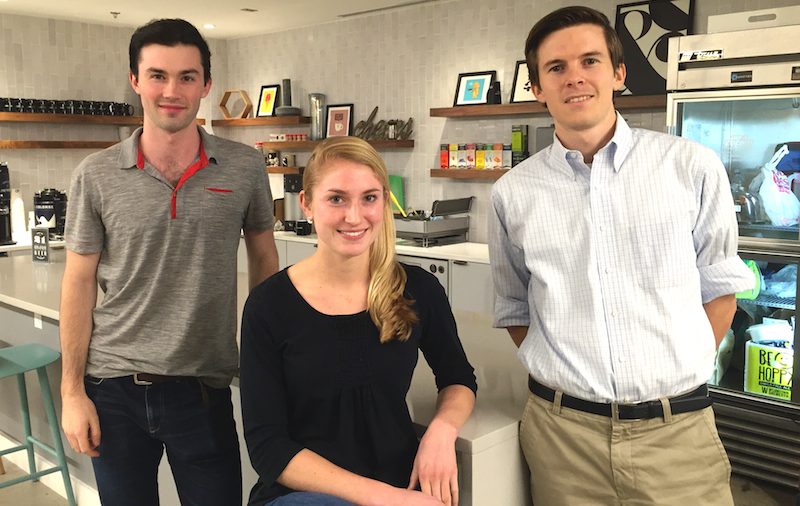
This is a First Look: It’s the first time any news outlet or blog has covered this startup. You can read more First Looks here. (We do this a lot.)
Like you, I take down a lot of information in the course of a day. And, like you, I have a lot of places to put it. I keep an Evernote account for quick notes. If the notes are part of a project, I move them to Google Docs & spreadsheets. I have three active gmail accounts. My Google Calendar is full of phone numbers, which I jot there as soon as I schedule a call.
Since roughly 2010, I’ve been wishing for a meta-search product that would let me search all of these applications at once, instead of going (like I do) through each individually, on deadline, hunting for the digits or some other piece of data I’ve squirreled away.
But not even Google will let me search across various gmail accounts. Nobody has made anything like this, until now. The company that’s doing it is called, fittingly, meta. It’s three Williams College grads and its product, now in beta, can search some of those services (Drive, Dropbox, Evernote and gmail), as well as files on your hard drive.
The road ahead of them is littered with corpses. Greplin is one of them: A Y Combinator startup that had its run on the Silicon Valley buzz mill, Greplin changed its name to Cue, pivoted and eventually got acqui-hired by Apple. Another app, called introspectr, doesn’t seem to have made it out of beta.
Here in Boston, there was another effort that got killed in the incubator.
“We built a tool at Backupify in late 2010 / early 2011 called Cloudsight, that was supposed to search your online life,” Rob May, founder of the online backup startup Backupify, told me. His company was in a good position to handle meta-search, since it was already handling meta-backup across several services. “The problem is, people wouldn’t pay for it, and you don’t look for your own private stuff as often as you do look through public information, so, it couldn’t support an ad model. We killed it during the beta.”
May called file meta-search “one of those great product ideas that makes a poor business.”
Meta has seen signs indicating otherwise, co-founder Emily Pavlini told me.
“Maybe a dozen companies that we’ve spoken with are very interested and definitely want to use it, and pay for it once it’s ready,” she said. “It’s still kind of early, so traction-wise there’s not much besides the people who are testing it. But just the response we’ve gotten from everyone we tell.”
I came across Pavlini during the SheStarts SheDemos event in Boston a couple weeks ago. (Meta won the pitch competition, in which I was a judge, along with Payal Agrawal Divakaran, Deb Kemper and Monique Fuchs.) She said people have come up to the founders with their credit cards in hand at pitch events like this.
She and her team figure that advances in natural language processing make this product work better and a proliferation of productivity tools (Slack, Evernote, Dropbox, etc.) makes it necessary.
“Libraries have been built, research has been done,” she said. “I think we had the advantage of all that existing research and literature….Companies trying to solve this awhile back didn’t have that.”
“The main thing is it has to be really simple to use. There can’t be a ton of steps to open it. It can’t be complicated,” she said, at another point in the conversation. “If you have a file in mind, you should be able to quickly open meta and type in whatever you remember about that file and it should come up in the first result or the first couple of results. And you should be able to click it and open it.”
Meta started with a $50K check from a Williams alum and followed it up with a $500K seed from about 15 more individuals, mostly, also, Williams alums. The founders have plans for a launch in 2016.
